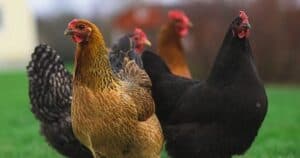Pros and Cons of Chicken Farming
Chickens have been a part of agriculture for centuries, and they continue to be so today. With the rise of backyard chicken farming, more and more people are becoming interested in raising chickens for their eggs, meat, and feathers. But what are the pros and cons of chicken farming?
Commercial chicken farming is the most common type of chicken farming and is also the most lucrative. Chickens are raised in large, crowded barns and are fed a diet of grains, corn, and soybeans. They are then killed and processed for their meat, eggs, and feathers. However, backyard chicken farming is growing in popularity because it is more humane than commercial chicken farming. Backyard chicken farmers are typically people who are trying to earn a little extra money, and they don’t have to give up their backyard to raise chickens. They can simply set up some pens and let their chickens free range.
While there are many advantages to chicken farming, such as their environmental sustainability and nutritional benefits, there are also some downsides. One of the biggest disadvantages is that chickens manure heavily, which can be a problem if you don’t have the resources to handle the waste created. Chickens also don’t do well in cold weather, so if you live in a colder climate, you’ll likely have to relegate them to indoor farming.
Whether you’re considering commercial chicken farming or backyard chicken farming, it’s important to weigh the pros and cons before getting started. By following the guidelines for proper backyard chicken farming and understanding the challenges of raising chickens, you can make an informed decision about whether chicken farming is right for you.
